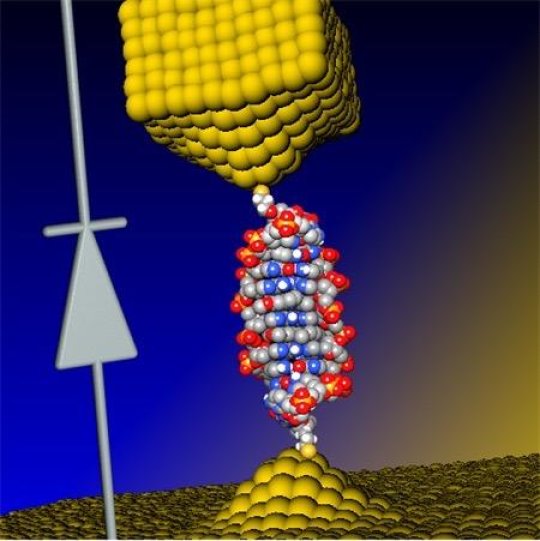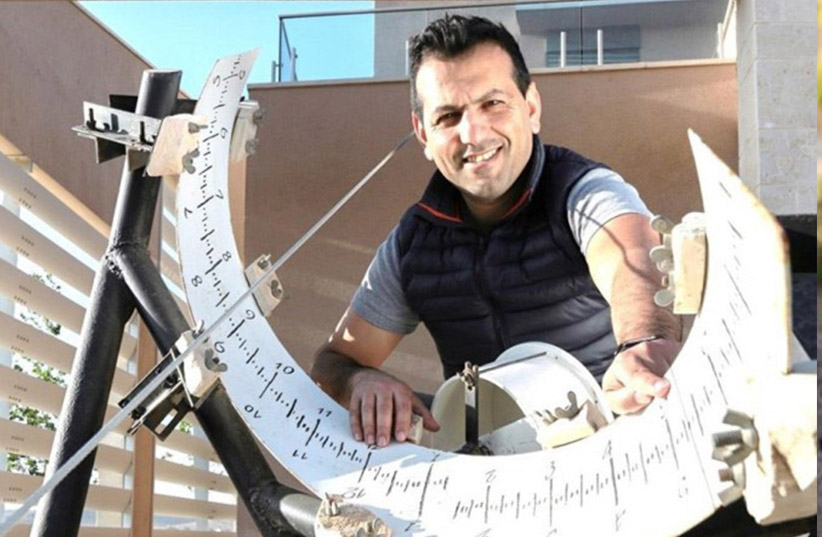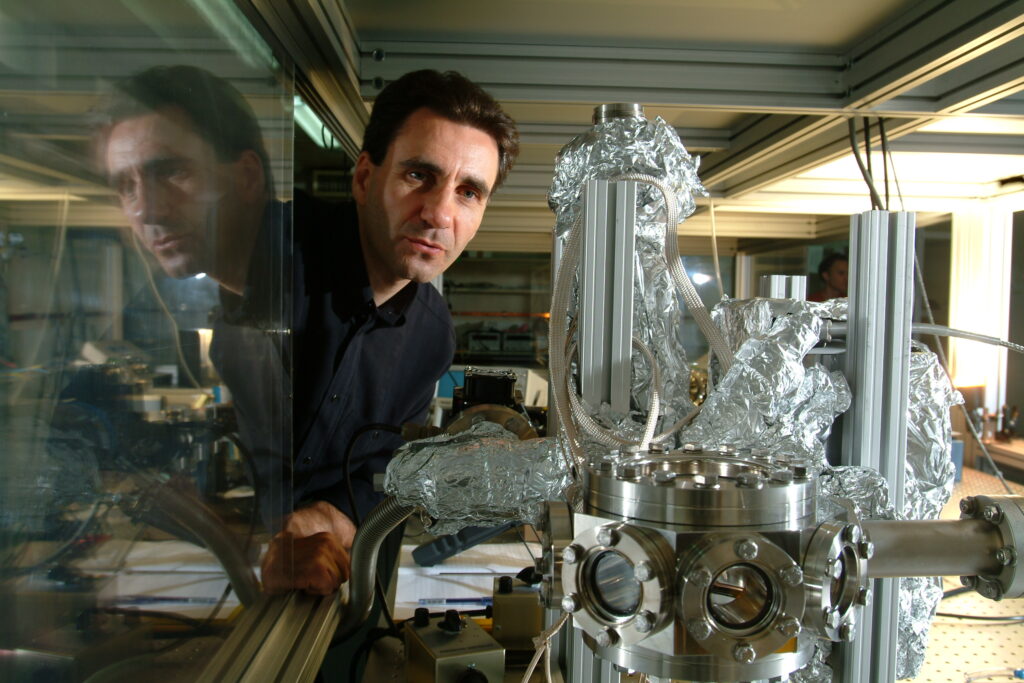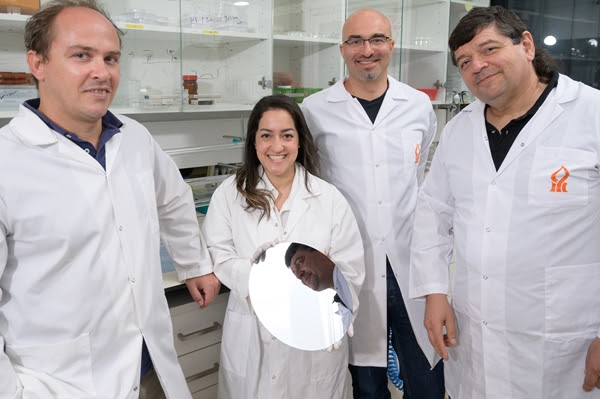
BGU Researchers Create World’s Smallest Diode
BGU Researchers Create World’s Smallest Diode
April 11, 2016
Yahoo — As computing hardware gets smaller and smaller, engineers have worked hard to shrink the silicon used in the processors that power these mini machines. Engineering can only do so much, and we are rapidly reaching the point where silicon is becoming so small that its performance starts to degrade.
To move beyond the physical limitations of this material, researchers at BGU and the University of Georgia have discovered how to use a single molecule of DNA to create the world’s smallest diode.

Illustration of the coralyne-intercalated DNA junction used to create a single-molecule diode, which can be used as an active element in future nanoscale circuits.
A diode is a standard electronics component that controls the flow of electricity by allowing it to travel in only one direction. Without diodes, smartphones, computers, tablets, and most any electronic appliance we use daily would not exist.
The researchers, led by Dr. Yonatan Dubi of BGU’s Department of Chemistry on the BGU side, created the diode from a specially designed piece of a single, duplex DNA. The strand was an 11 base pair piece of DNA that was connected to a nanoscale electronic circuit.
In early trials, the current flowing through the DNA strand exhibited no unusual behavior. The team discovered that after adding a molecule called coralyne into the test substance, the piece of DNA began to act like a diode.
Detailed in the prestigious science journal Nature Chemistry, these nanoscale circuits could transform the field of electronics as we know it, leading to the production of electronic components over 1,000 times smaller than what is currently in the market.



